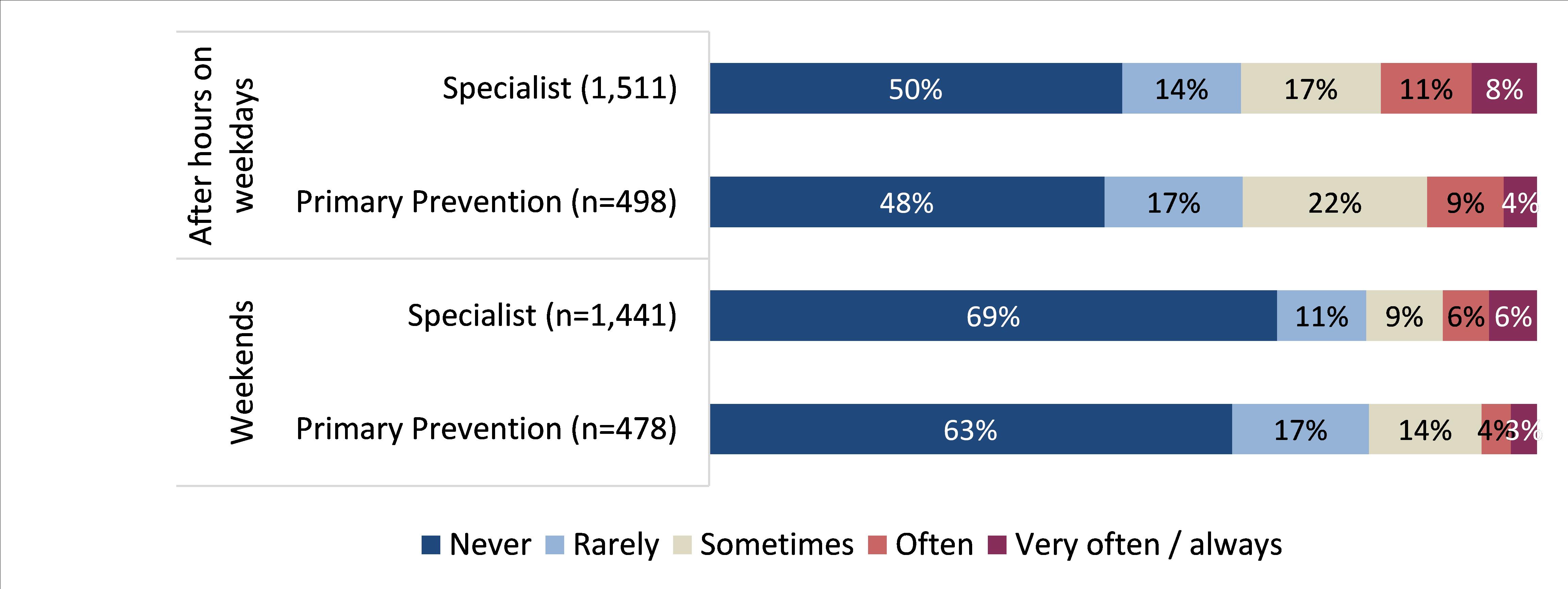Employment type
Across the specialist and primary prevention workforces, over half of respondents indicated that they were employed on a full-time basis (ongoing or fixed term, 58% and 51% respectively - see Table 6); though primary prevention workers were less likely to hold ongoing full-time roles.
| Employment type | Specialist family violence response (n=1,532) | Primary prevention (n=504) |
|---|---|---|
| Ongoing full time | 46% | 34% |
| Fixed-term full time | 12% | 17% |
| Ongoing part time | 27% | 25% |
| Fixed-term part time | 10% | 18% |
| Casual / sessional | 3% | 4% |
| Other | 2% | 2% |
Hours and days worked
The majority of the specialist workforce indicated that they were generally paid to undertake their work during normal business hours (see Figure 1). Around one-in-five reported that they were frequently (‘often’ or ‘very often’) paid to undertake their work after hours on weekdays (19%), while 11% were frequently paid to work on weekends. A relatively smaller proportion of the primary prevention workforce reported frequently being paid to undertake their work after hours on weekdays (13%), whilst 7% reported doing so on weekends.
Unpaid work
Respondents were also asked to provide comment about any unpaid work that they undertook.
- Overall, fewer than one-in-three specialists indicated that they frequently worked additional unpaid hours (17% often and 14% very often / always), though a further 26% reported that they sometimes did so.
- Similarly, one-third of the primary prevention workforce reported that they often worked additional unpaid hours (21% often and 13% very often / always), whilst a further 30% noted that they sometimes did so.
Updated
